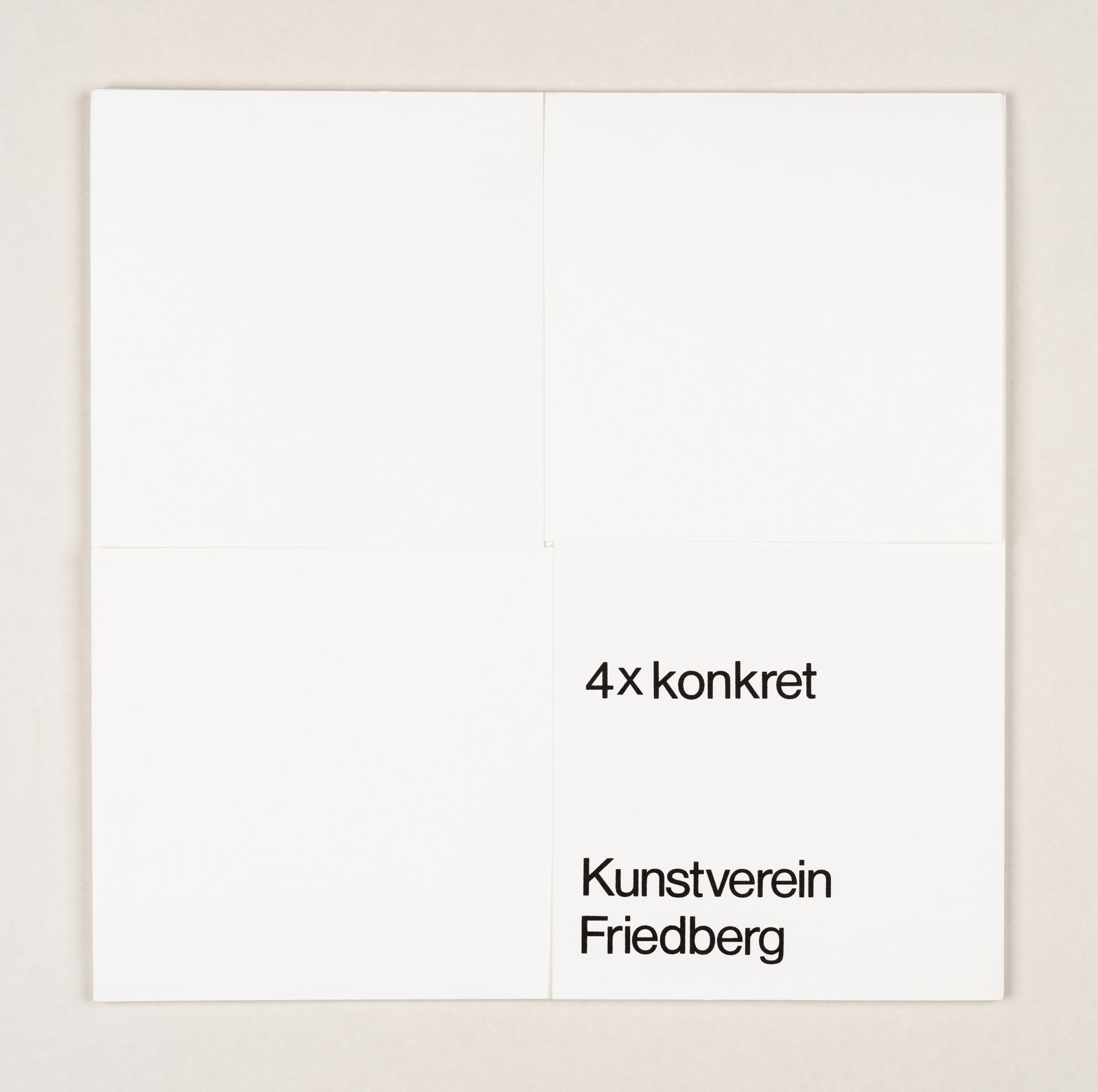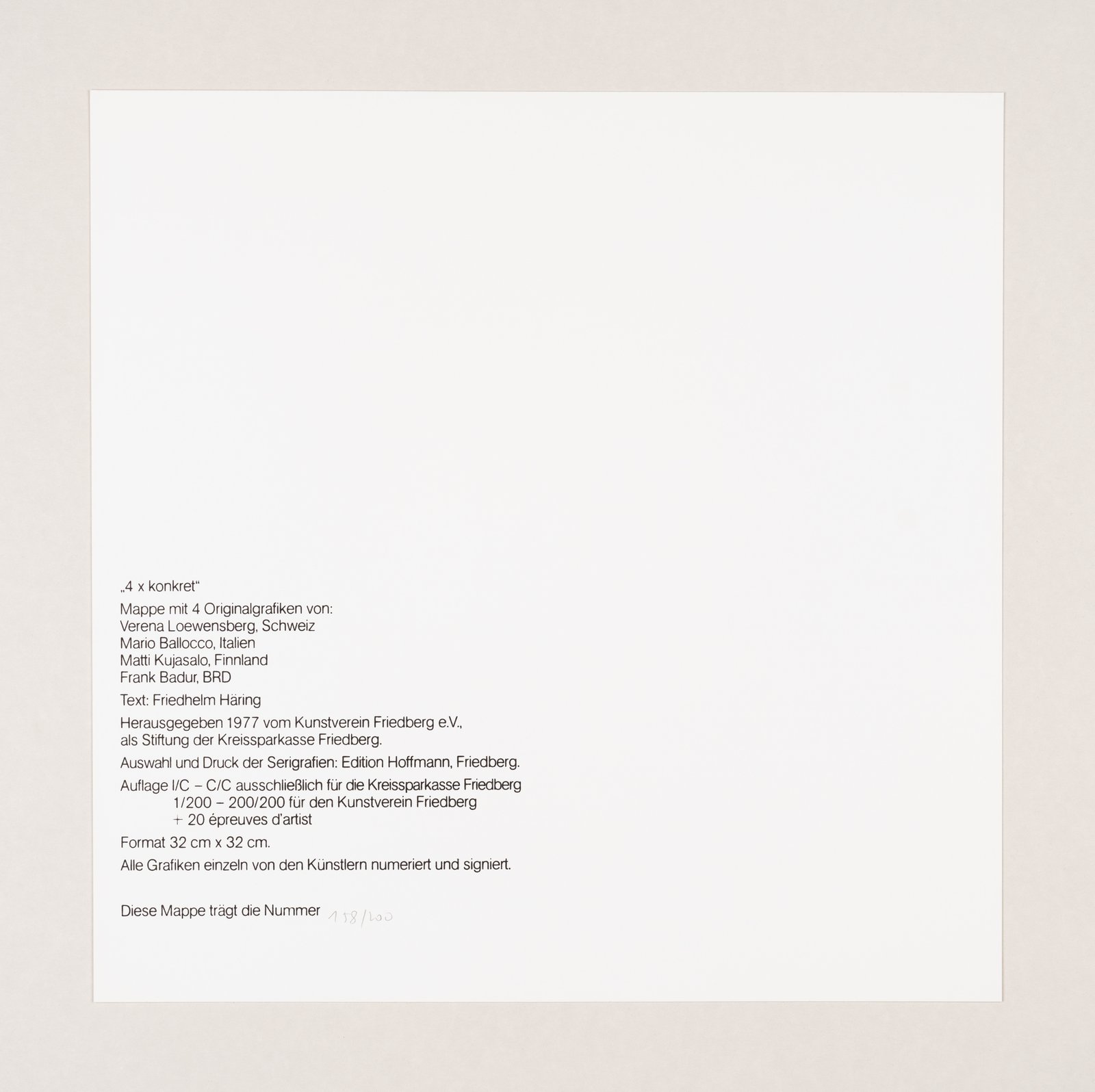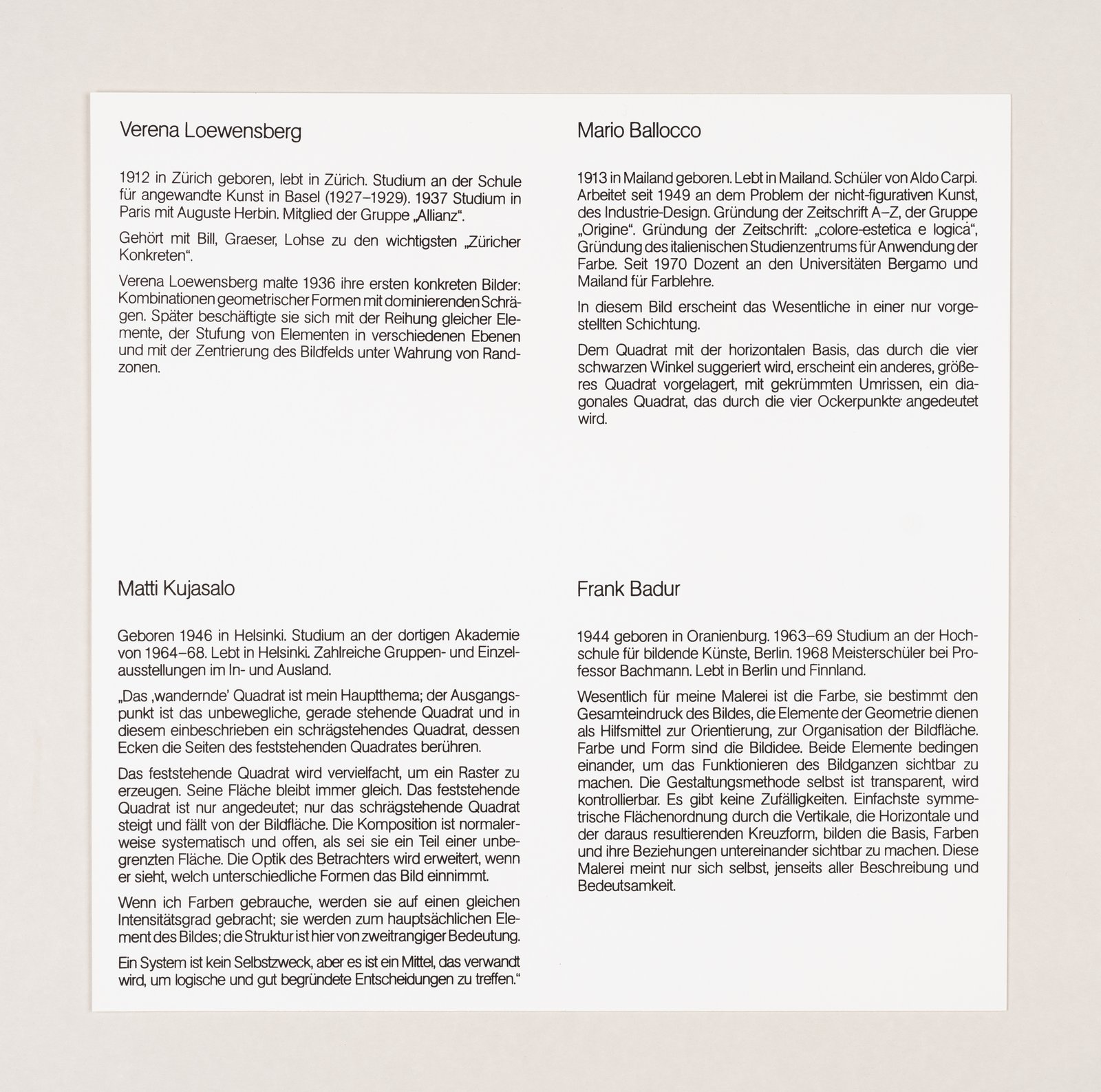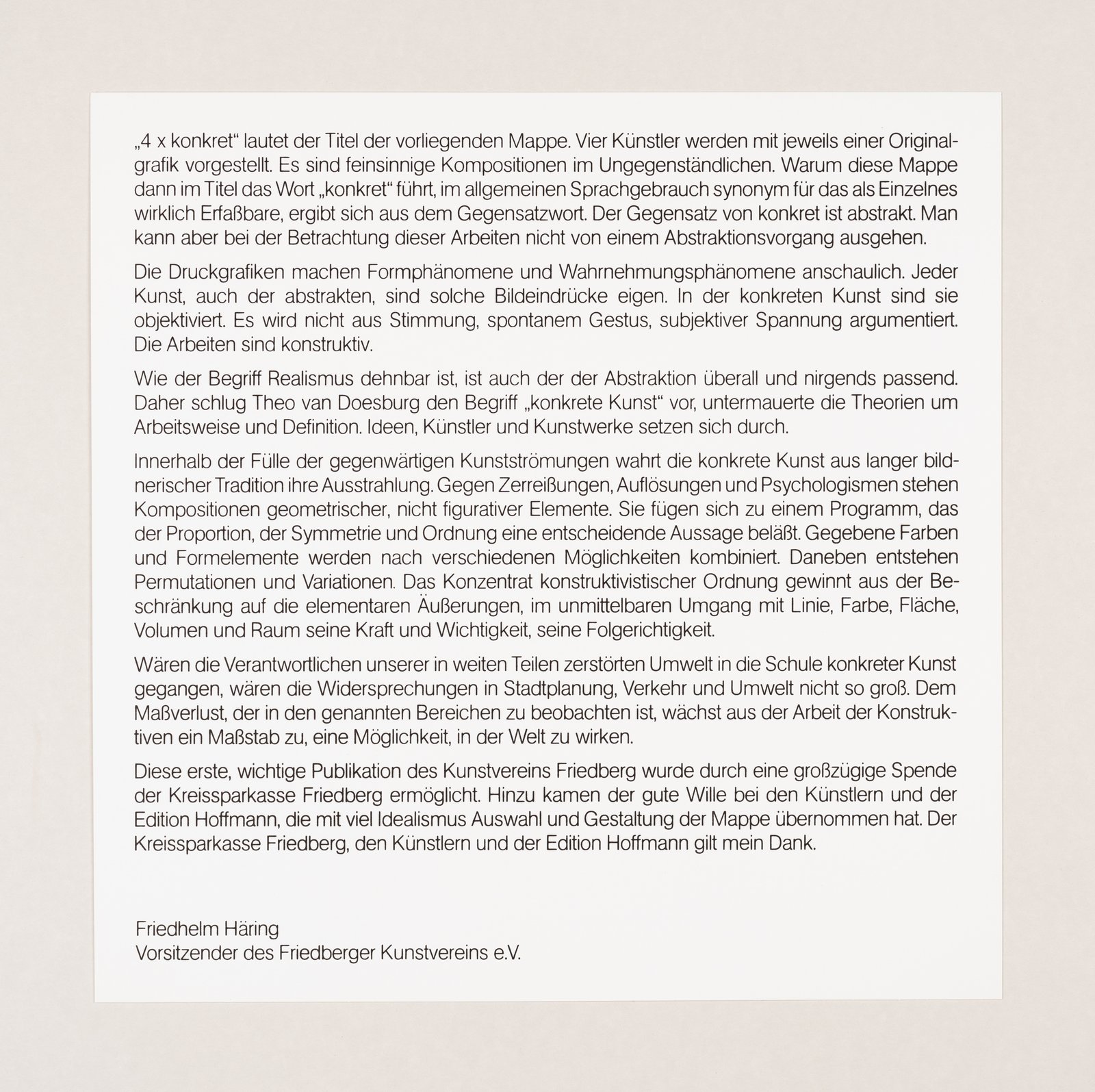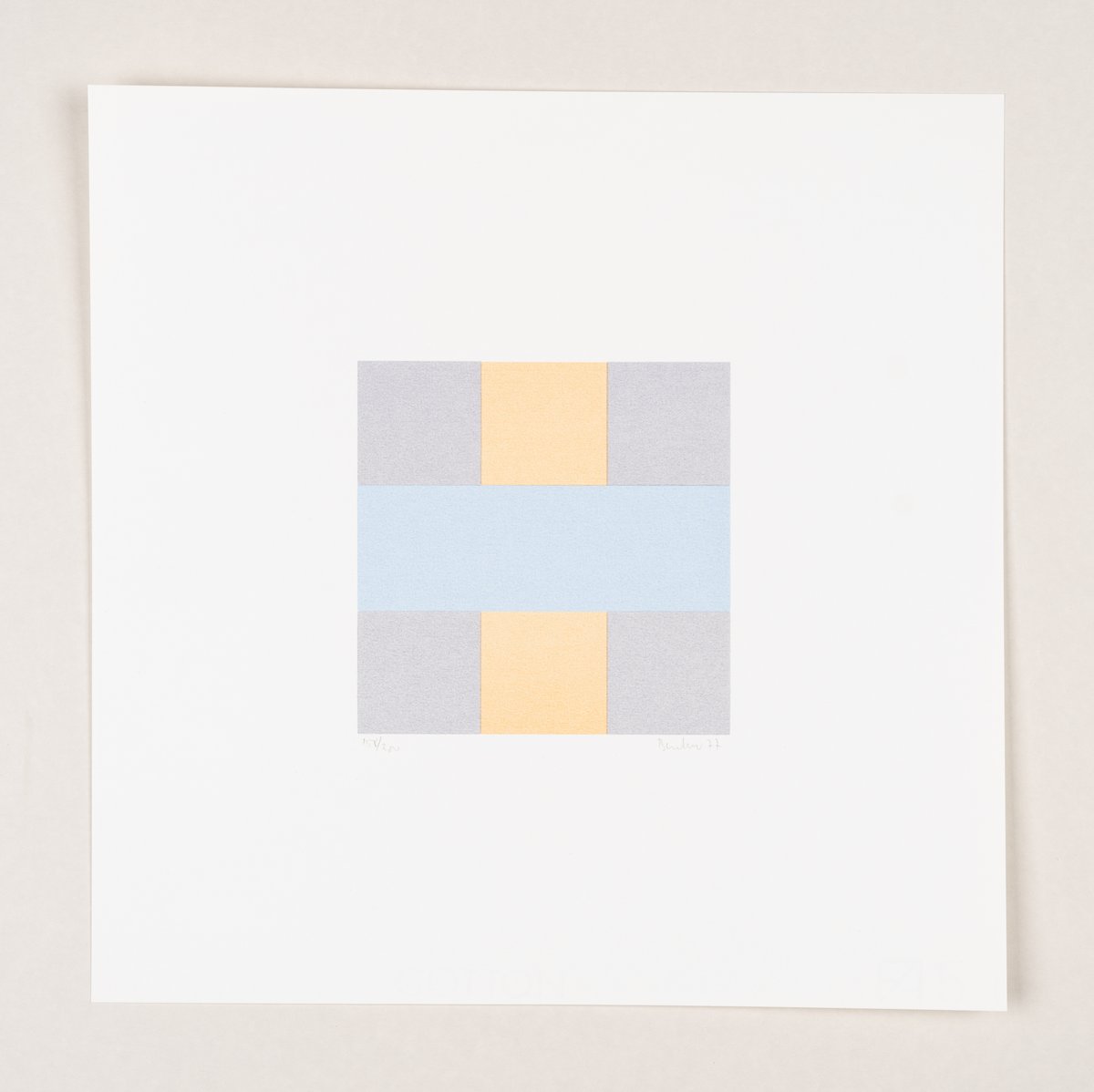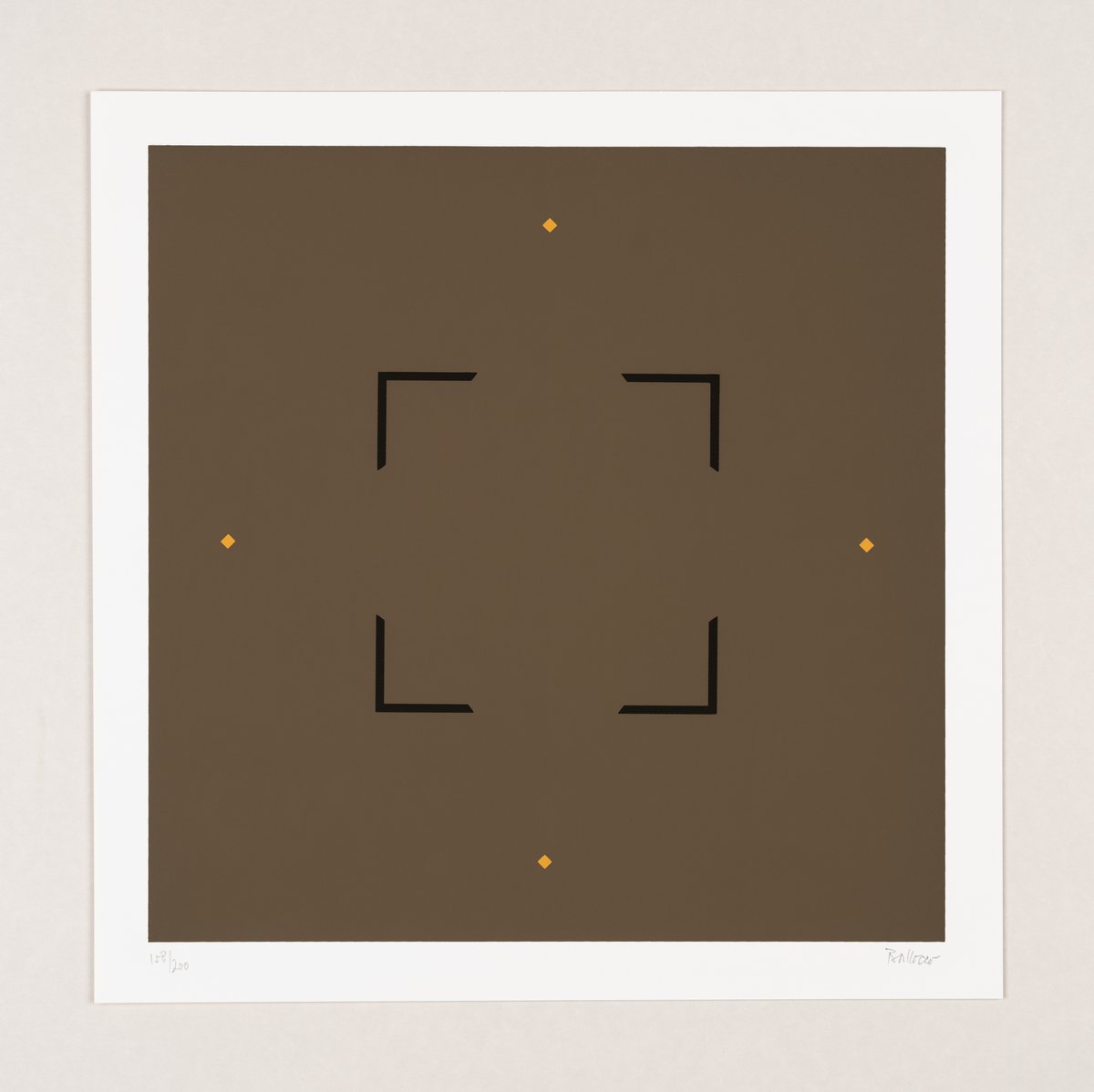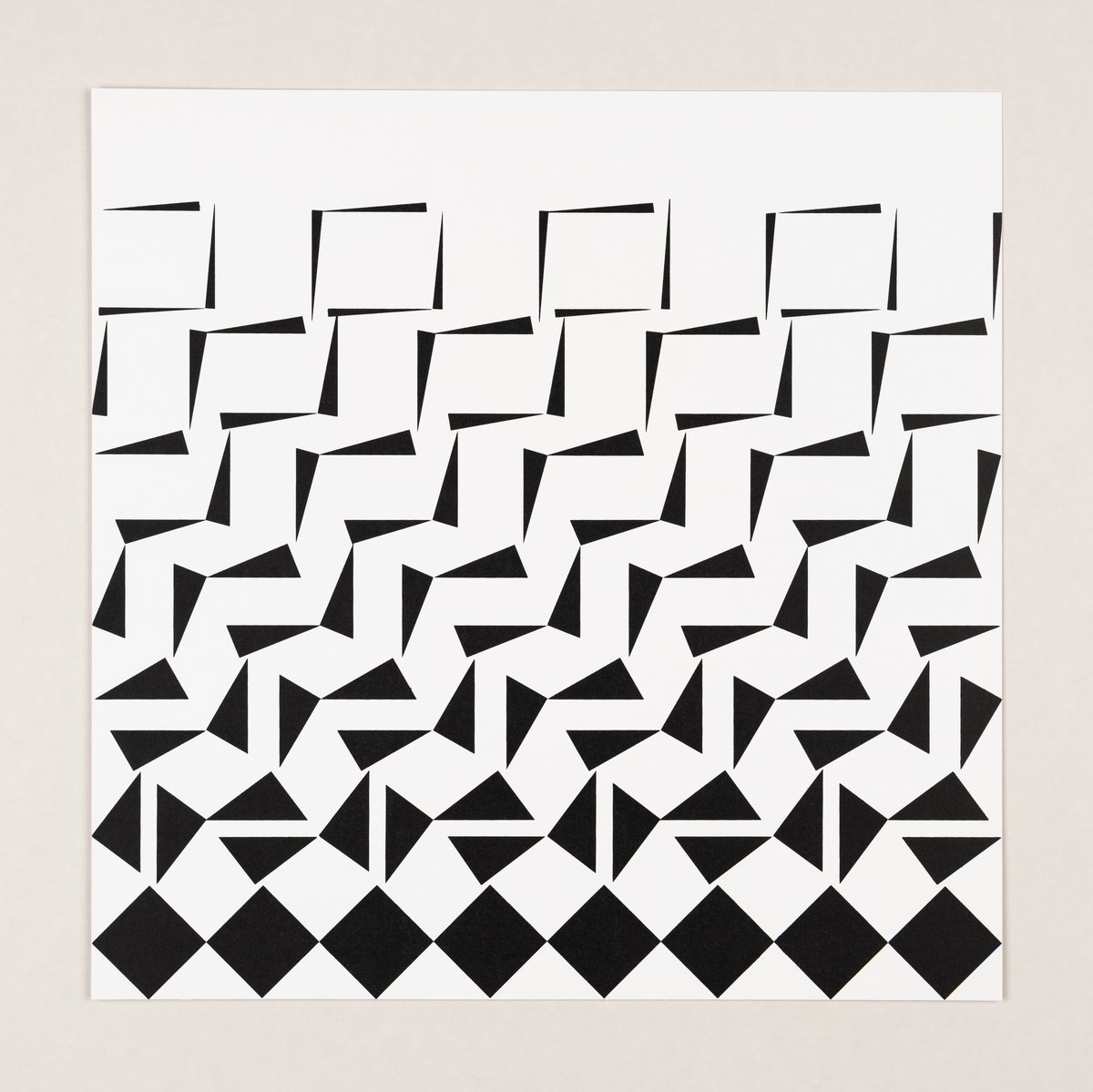4 x concrete
frank badur, mario ballocco, matti kujasalo, verena loewensberg
1977
silkscreen on paper
32 × 32 cm
1′ 2⁄4″ × 1′ 2⁄4″
edition hoffmann
edition of 300 + 20 e.d’a.
signed, dated and numbered
4-part portfolio
publisher: edition hoffmann, kunstverein friedberg
design/layout: edition hoffmann
printer: edition hoffmann
2100 € incl. VAT
“4 x concrete” is the title of this portfolio. four artists are presented each with an original serigraphy. they are subtle, non-figurative compositions. the reason this portfolio then has the word “concrete” in its title, which is generally synonymous with what can really be grasped, derives from the opposite word. the opposite of concrete is abstract. however, when looking at these works, one cannot assume an abstraction process.
the prints make form-phenomena and perceptual phenomena clear. such visual impressions are characteristic of every art, including abstract art. in concrete art they are objectified. the argument is not based on mood, spontaneous gesture, subjective tension. the work is constructive.
just as the term realism is flexible, so is that of abstraction everywhere and nowhere. theo von duesburg therefore suggested the term “concrete art,” underpinning the theories about working methods and definition. ideas, artists and works of art prevail.
the long tradition of concrete art, within the abundance of current art movements, preserves its charisma. geometric, non-figurative elements are posed against breaks, dissolutions, and psychologizing. they fit into a program which leaves its decisive mark on proportion, symmetry, and order. available colors, shapes and elements are combined in their diverse possibilities. in addition, permutations and variations arise. the essence of constructivist order gains its strength and importance, its consistency, from the restriction of its elementary expressions to line, color, surface, volume, and space.
if those responsible for our widely damaged environment had instead attended the school of concrete art, the contradictions in urban planning, traffic, and the environment would not be so dramatic. the loss of proportions that can be observed in those areas of society could be regained from the work of the constructive, leading to a new mode of acting in our world.
friedhelm häring, 1977
